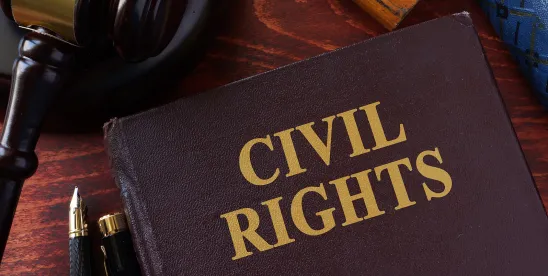On July 24, 2025 Columbia University and the White House announced that they had reached a settlement related to Columbia’s alleged violations of Title VI of the Civil Rights Act of 1964, which the administration had used as a basis for, over the past several months, stopping millions of dollars in federal funding to the University. The settlement agreement is wide-ranging: in return for a restoration of federal funding, Columbia has agreed to pay $200 million to the federal government and $21 million to a fund for EEOC claimants, agreed to specific provisions related to hiring, admissions, and student discipline, agreed to a review of its Middle East studies programs for “comprehensive and balanced” content, and agreed to have its adherence to the settlement reviewed by an independent monitor. In a fact sheet, the White House referred to the settlement as “historic.” Observers in higher education, including former Harvard President Lawrence Summers, described it as a “template” for agreements with other universities that are under investigation, and are at risk of–or have already lost–federal funding.[1]
The timing – if not the content – of Columbia’s settlement may be advantageous for colleges and universities seeking to avoid federal investigations and/or federal funding cuts. Institutions on summer break can use the settlement as an opportunity to review their policies and practices, and to consider adjustments that could bring them in line with the administration’s expectations.
In such a review, the following areas of the settlement should be considered and compared with an institution’s existing policies:
- Identity-based liaisons for students potentially permitted, at least regarding antisemitism issues. The settlement requires Columbia to have an administrator designated as a “liaison to students concerning antisemitism issues.” As a result, the settlement appears to support outreach to students based on identity, with the goal of creating a pathway for administrators to raise students’ identity-based concerns with University leadership. It is unclear if the administration would support schools maintaining such a liaison for other groups.
- Preferences based on protected characteristics are prohibited. The settlement prohibits Columbia from “providing benefits or advantages to individuals on the basis of protected characteristics,” and specifically discusses the elimination of race-based outcomes, such as “quotas” or “diversity targets.” The use of race as a factor in admissions was addressed by the Supreme Court’s 2023 decision in Students for Fair Admission vs. Harvard (SFFA), and the Columbia settlement echoes the administration’s view – expressed in the Department of Education’s February 14, 2025 Dear Colleague Letter – that SFFA’s prohibitions extend to all educational benefits, including scholarships and financial aid and faculty hiring and promotion.
- Single-sex housing, bathrooms, and locker rooms must be an option. The settlement requires Columbia to provide women, in particular, with “single-sex housing” upon request and “all-female sports, locker rooms, and showering facilities.” “Female” or “sex” is not defined in the resolution agreement; however, in its January 20 executive order, the administration defined “sex” as an “immutable biological classification” and indicated that whether a person was male or female was determined “at conception.”
- International students will continue to be scrutinized. The settlement requires that Columbia review its international student admissions practices and “ensure that international student-applicants are asked questions designed to elicit their reasons for wishing to study in the United States.” It does not indicate the purpose of such a question, or what Columbia should determine based on the applicant’s answer. The settlement also requires Columbia to “take steps to decrease [Columbia’s] financial dependence on international student enrollment” and to provide the federal government, upon request, “with all disciplinary actions involving student visa-holders resulting in expulsions or suspensions” and arrest records of which the University is aware. This disclosure requirement is limited by the University’s obligations under the Family Educational Rights and Privacy Act (FERPA).
- Foreign funding will also be scrutinized. The settlement reiterates Columbia’s obligation to report foreign gifts and contracts under Section 117 of the Higher Education Act, and states that the University will “as needed, engage experts on laws and regulations regarding sanctions enforcement, anti-money laundering, and prevention of terrorist financing” to assist them in complying with legal requirements regarding foreign money.
- Training on non-discrimination policies should reflect limits on speech. The settlement requires training for all “international and domestic” students on the “the longstanding traditions of American universities” such as “civil discourse” and “values of equality and respect.” Students must agree not to violate non-discrimination policies and Columbia’s training materials should “socialize all students to campus norms and values more broadly.”
- Policies must include limitations on protest activities, and measures allowing for the identification of protestors. The settlement requires Columbia to maintain policies that prohibit protests in academic buildings and “other places where academic activities take place”; to require students who are engaged in protests to present University identification to public safety officers upon request; to prohibit “face masks or face coverings” during protests “for the purpose of concealing one’s identity”; and to allow for discipline of student groups in addition to individual students.
- Engagement with police expected. The settlement requires Columbia to maintain at least 36 public safety officers “with the ability to remove individuals from campus and/or arrest them when appropriate” and to continue its existing Memorandum of Understanding with the New York City Police Department.
Institutions across the U.S. should review the above-listed aspects of the Columbia settlement while reviewing their own policies and practices this summer.
[1] See What Columbia’s Trump settlement could mean for Harvard, higher ed – NBC New York






 />i
/>i
